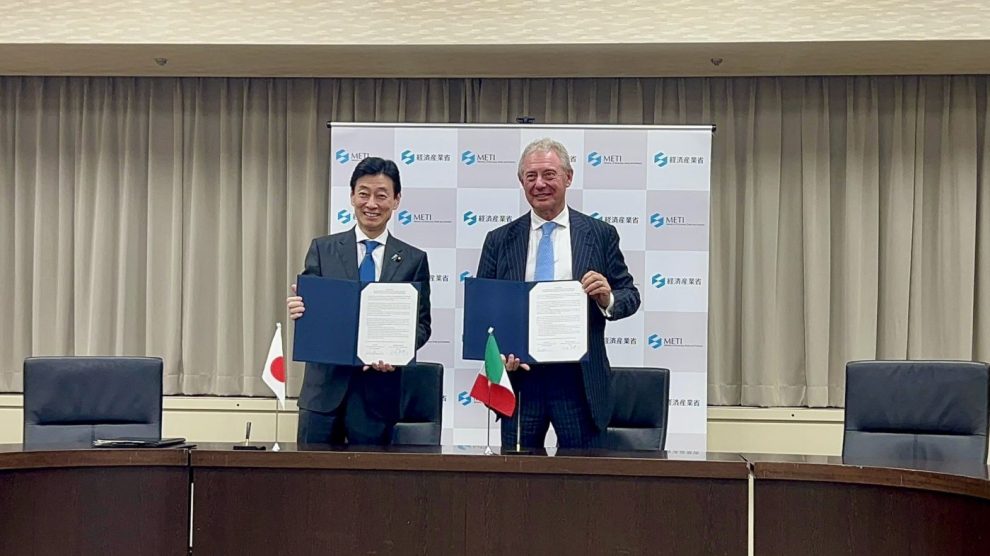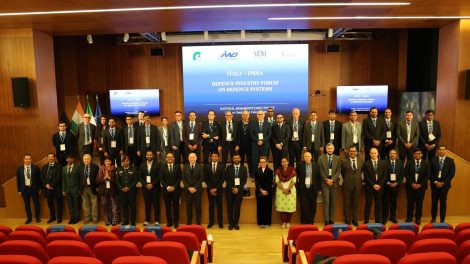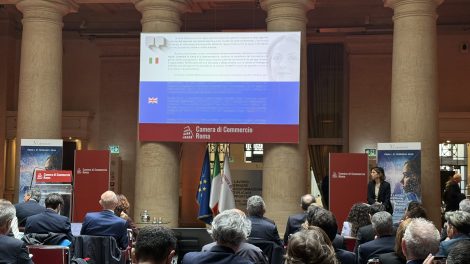The growing Italy-Japan entente. It’s been nearly a year since Rome and Tokyo elevated their bilateral relation to a “strategic partnership”. Prime Ministers Giorgia Meloni and Fumio Kishida did so in January 2023, kickstarting a deepening of political, economic and defence collaborations that were embodied in high-level diplomatic contacts throughout the year.
- The strategic partnership itself was launched just a few weeks after Italy and Japan, along with the United Kingdom, announced they would launch the Global Combat Air Programme to jointly build the next-gen fighter jet.
- The launch of the operative platform to design and build it is expected in a matter of days.
Adolfo Urso’s industry-heavy trip. The Italian Ministry for Enterprise and Made in Italy was the last one to travel to Tokyo. On Tuesday he met with Yasutoshi Nishimura, Minister of Economy, Trade and Industry, and signed a joint document geared towards deepening the economic, industrial and technological cooperation and fostering mutual investments between the two countries.
- The agreement is “a further step forward in the strategic partnership between [our governments], which have increasingly full convergence of views on the challenges of the future,” said Minister Urso, noting that Rome and Tokyo intend to strengthen cooperation on the industrial level.
- Target areas for cooperation between companies and startups include next-gen technologies such as artificial intelligence, semiconductors and quantum technologies, as well as energy, infrastructure and biotech.
- Minister Urso also set up a one-stop shop dedicated to Japanese investors interested in dealing with Italian companies.
Don’t forget digital… The Italian Enterprise Minister also met with Internal Affairs and Communications Minister Junji Suzuki to discuss collaboration on digital and frontier technologies (as the PMs had convened) as well as Italy’s presidency of the G-7 in 2024 (which succeeds Japan’s own). A G-7 meeting on Industry and Digital Economy will be held in March and flanked by a Multistakeholder Conference to promote co-investment strategies in highly strategic areas.
- “We want to strengthen industrial and digital synergies [with Tokyo] in order to face the challenges of the future with a shared approach, starting with the common course we intend to chart in the relay between G-7 presidencies,” Minister Urso said.
- He also met with Sony executives and “warmly welcomed” the company’s entry into the Italian Chips.IT Foundation.
… and space. He also met with Sanae Takaichi, Minister of Space and Technology, to talk about working together – most notably on Earth observation and space exploration. The duo highlighted the importance of the shared, US-initiated Artemis lunar exploration program, and also zeroed in on the G-7 – where space policies will be discussed.
- There is “full agreement between our countries for an industrial and technological partnership in the space sector, including through research and experimentation projects. Space is confirmed as a great opportunity for development and innovation that we intend to seize with conviction,” commented Minister Urso.
Back to defence. These collaborations run parallel to closer military convergence, as demonstrated by joint naval and air exercises in the wake of Italy expanding its Indo-Pacific projection – and Japan looking to the Mediterranean. That follows the concept of indivisible security necessary to maintain what the late Japanese PM Shinzo Abe called the “free and open Indo-Pacific”.
- Indivisible security was on the mind of the nine national NATO officers who just travelled to Tokyo for the very first time. Among them was Italy’s Permanent Representative to the Alliance, Marco Peronaci, who reiterated the concept to ANSA.
- The far Eastern theatre “appears distinct,” but as the Russian invasion of Ukraine has made clear, “is connected to the rest of the world,” explaining that a Russian victory “could give Beijing some bad ideas” – a thinly-veiled reference to Taiwan.
- He also depicted the GCAP as consistent with “the vision of open strategic autonomy in NATO, meaning that we aim to strengthen security relations.” That includes industrial partnerships, he explained, which “[strengthen] the Alliance as a whole; after all, NATO’s Article 5 talks about the importance of bilateral economic cooperation as the basis of security relations.”





